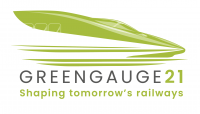The Great Western Partnership – a public/private partnership stretching from Swansea to Heathrow along the Great Western Corridor – has launched its recommendations for a 25-year investment programme on the Great Western Main Line to enable high speed train services.
The GWP commissioned Greengauge 21 to identify a series of incremental improvements to the GWML and provide evidence for the value they could add to economic performance along the Great Western Corridor.
The GWP will establish a partnership with government and the rail industry to deliver five core outputs:
- Recreate an intercity railway, with much faster journey times and more frequent services to London and other major cities such as Birmingham;
- Provide access to international gateways, with fast direct access to Heathrow from the west and direct services to Europe;
- Build regional and local services, to maximise the benefits of Crossrail to the Thames Valley, and provide regional metro services for Swansea, Cardiff, Swindon and Bristol at affordable fares;
- Move freight sustainably, making provision for forecast increases including new terminals;
- A continuing staged investment programme, with a 25-year rail service improvement programme through which the GWML will become part of the national High Speed Rail network.
Specific projects include reducing the journey time from Swindon to London by 27% (from 55 to 40 minutes and from Swansea to London by 48% (from 2h58 to 2 hours) by 2033, from 2019, a 30-minute service 4 times per hour from Reading to Heathrow; from 2022, direct hourly services from Cardiff/Newport/Bristol Parkway and Swindon to Heathrow; direct international services between Cardiff/Bristol and Paris/Brussels from 2026.
Greengauge 21 Director Julie Mills said:
“An important part of our thinking on a national high-speed rail network has to be to consider progressive upgrade where we have main lines that could be suitable for higher speeds with some adaptation. The Great Western Main Line is a case in point, and if a HSR hub can be created at Heathrow, starting with the current plan for Phase 2 of HS2, then we can see some truly exciting service opportunities achievable at reasonable cost and timescale.”
“The analysis that underpins the GWML Conditional Output Statement is based on a programme of interviews across the GWML corridor, with private and public sector interests, together with a thorough review of the evidence on the relationship between economic performance and rail service quality in the South West of England and South Wales. This allowed us to identify the outputs that the rail industry should aim to deliver so that the economies of the west can expand. With many businesses established in the M4 corridor over the last thirty years, the risk is that, if rail connectivity isn’t improved, existing and still growing businesses may elect to go elsewhere, including offshore.
“The analysis revealed a major threshold at 2 hours rail journey time from London, beyond which there is a significant fall off in economic productivity. It is important to realise that connectivity to London, to Heathrow and to other major cities is counted in minutes and that changing the country’s rail accessibility profile has the potential to help in that most challenging of tasks: rebalancing the national economy.”
Leader of Cardiff Council, Councillor Heather Joyce, said:
“The new Labour administration fully supports this development, in particular, the huge benefits this would bring to the capital city and to Wales as a whole. It would also provide a realistic alternative to the M4 corridor and allow for businesses to benefit from increased trade, less congestion and reduced carbon emissions. It makes a compelling argument and our region has to seize this opportunity”
Jon House, Chairman of the GWP, said:
“The Great Western Main Line is part of the UK’s core infrastructure and crucial to the economic success of south Wales and south west England. Despite the welcome commitment to electrify part of this line, high speed rail development between the north of England and London will put us at a severe disadvantage. It is vital to have a long-term, incremental investment programme to provide frequent high speed services between our city regions, London and Heathrow Airport. This action plan can and must be delivered by the GWP and the rail industry”.
Baroness Eluned Morgan, Cardiff Business Partnership said:
“Passenger demand has consistently outstripped forecast growth on the Great Western Main Line since privatisation, and rail freight demand has continued to rise during the recession even as road freight has fallen. Business needs rapid, efficient, reliable rail services to shrink the geographical disadvantage of being located outside south east England, the principal domestic market for many companies and the one with international access. We look forward to working with the rail industry and government to deliver the GWP’s 25-year improvement plan”.
The Great Western Conditional Output Statement can be found here.
Further information on the Great Western Partnership can be found here.
